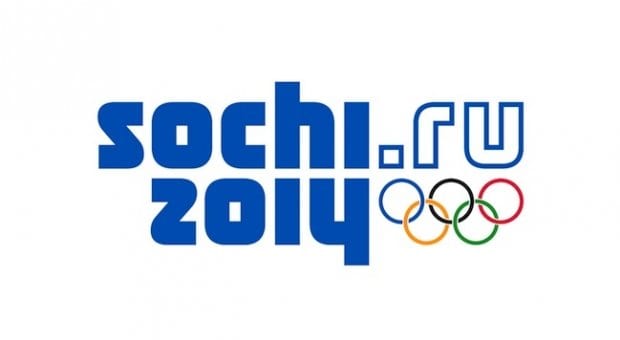“I suggest all the flags be put together, made into a nice bright blanket and wrapped around Herr Hitler’s head.”
That was Hal Straight, writing in the Vancouver Sun in 1935. He was railing against Hitler’s attempt to exclude Jews from the Berlin Games.
The Sochi Winter Games will arguably be the world’s third turn around the bend since Hitler in letting autocrats host the Olympics – following the tradition of doting alcoholic Soviet Chairman Lenoid Brezhnev, the incapable collective Communist leadership in Yugoslavia, and, most recently, Chinese President Hu Jintao.
But Vladimir Putin isn’t quite like his Soviet predecessor or his Yugoslav comrades, and he certainly has none of the dictatorial benevolence of Jintao.
No, Putin, not unlike Hitler, appears to be a goddamn psychopath.
Which is why we all have to go to Sochi.
“The Olympics do not belong to Hitler, nor Germany. They belong to the world,” Straight wrote in his Sport Rays column.
The current debate is the right one — and it’s not unlike the one we had before deciding to boycott the Berlin Olympics. Canada is on the same page: Putin, ostensibly our geopolitical ally, is a homophobic bully whose anti-gay histrionics have, undoubtedly, suppressed our brothers and sisters throughout the country and whipped up intense hatred, which brownshirts and neo-Nazis are doling out right now to homosexuals throughout the country.
So he doesn’t deserve the Olympics. In the end, between the boycott and the success of Hitler’s hated minorities, the games arguably belonged more to those marginalized than to Hitler’s fascist regime. Hitler was upstaged by black runners like Jessie Owens and Canadian Phil Edwards (head of the Canadian summer team). Then there was Ontario native Irving “Toots” Meretsky, the only Jewish player on Canada’s basketball team (most of the other Jewish players boycotted the Games). He used his time in Germany to visit the Jewish ghettos. He recounted the experience: “no one was on the streets, and the shades were drawn. I knocked at a few doors and was finally let in. It was obvious they were all scared.”
Gay figure skater Johnny Weir echoed Meretsky’s determination. “There isn’t a police officer or a government that, should I qualify, could keep me from competing at the Olympics,” he wrote in a column.
In a fitting coincidence, many gay Canadian athletes will be heading to the Outgames in Antwerp, Belgium. A year after Hitler’s games, many Canadian players who boycotted the Berlin event, some of them Jewish, headed to Antwerp for the Workers’ Summer Olympiad, a Socialist-led protest.
Yet there appears to be a growing consensus in Canada that boycotting Sochi is not the way to go. Adam Goldenberg, Kirby Simon Human Rights Fellow at Yale Law School, has struck out a defence of the idea.
“Three years ago, we hosted the most gay-friendly Olympics in history. In six months, those whose identity we so proudly celebrated in Vancouver may be forced into silence in Sochi,” Goldenberg wrote in Maclean’s.
“Those who oppose a boycott typically point to its likely futility; the Russians are going to persecute gays whether we show up or not, the thinking goes, so why not show up?” Goldenberg says, highlighting the fundamental problem with the anti-boycott argument, “even if Sochi becomes a momentary bubble of tolerance, and even if openly gay athletes reach the podium, the story in Russia, if not everywhere else, will be the games’ — and the regime’s — success.”
Patrick Burke is the president of the You Can Play team, which advances acceptance of gay rights in the hockey industry. Burke doesn’t support a state-based boycott, but he says he won’t be going to Sochi as a spectator.
“I would never recommend that a fan go to these Olympics,” Burke said on the TSN program The Kaufman Show. “I’m not going to put a dollar in the local economy as a fan.”
Both Goldenberg and Burke’s ideas have merit. Politically spanking Putin could further isolate him and work to make his ironclad political stability a little more precarious, while economically stiffing the country could move to force Putin to wear the financial impact of his backward domestic policy.
Both are marginally effective solutions at best.
Yet they are both more palatable than the alternative of going to the Games, wearing a tiny rainbow flag and professing your love for the gays amongst those cosmopolitan thinkers in the Olympic Village.
No, the Olympics present a great excuse for the out queer Canadian masses to go and scare the fear of Cher into Putin’s heart.
It strikes me the number of times I’ve heard a rather guilty admission: the great gay struggle is over. There are no Stonewalls left to defend and no vice squads left to riot against.
The gay movement that still connects with its activist roots has an embarrassment of riches — a not-yet-perfect life that has moved its fight to human-rights tribunals and public awareness campaigns, instead of stiletto-wielding and rock-hurling. It’s a life we’ve earned, and ought to be helping others achieve.
Gay people in Russia are not victims. They don’t need our sympathy or lobbying of their autocratic overlords. They don’t need petitions and flag pins.
They need us to buy them a drink and hold their earrings as they face the paramilitary hate squad.
There are no fewer than a dozen gay bars, clubs and saunas in Moscow. Some advertised, some not. Russian queers don’t need you to stay at home in protest; they need you to show up and defend their turf.
Last year, one Moscow gay bar was attacked by a dozen masked assailants. Every Pride parade, police and anti-gay protesters turn the scene into a riot. Then there’s the anti-gay propaganda law that puts Russians and tourists alike in prison.
Matthew Halton covered the 1936 Berlin Olympics for the Toronto Daily Star.
“Heaven knows I don’t begrudge the German people the semi-religious rapture they got out of the Olympics,” he wrote. “It is much better than what will come after the ‘Olympic Pause.'”
There’s no doubt that Russia’s queers will dread the ham-fisted state morality regime that will fall back down once these Games pass. But Russia’s queers are as fierce as they come, and they should know we stand beside, not behind, them.
So buy yourself a plane ticket. Grab a fistful of rubles, pack a pair of fierce boots and bring your righteous indignation. Defeating Putin and his anti-gay Stasi isn’t a geopolitical campaign. It isn’t a PR junket. It’s not the athletes’ responsibility.
It rests solely on the well-toned shoulders of the Russian queer community. And we should be helping.
Could it lead to harassment? Da.
Could it mean going to jail? Da.
Could it mean getting beat up? Da.
But would it be worth it? Hell da.
It’s time to wrap Putin in a Pride flag.


 Why you can trust Xtra
Why you can trust Xtra


